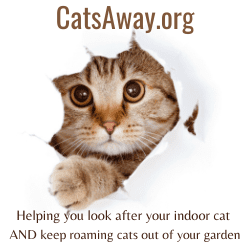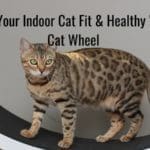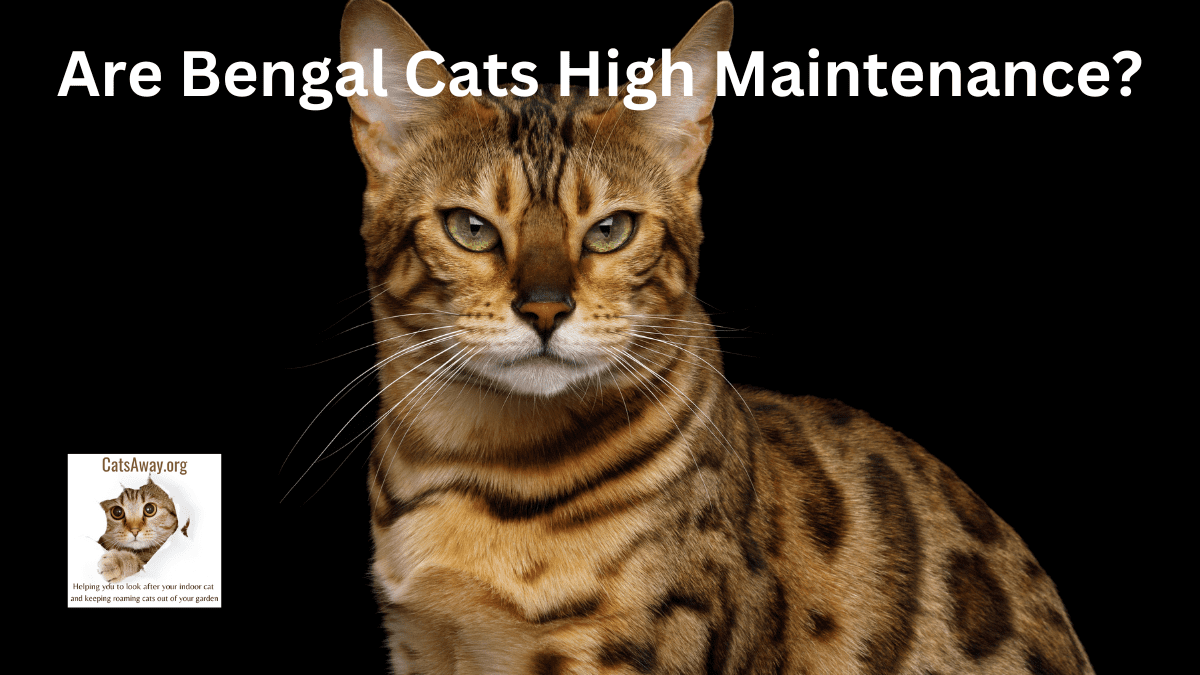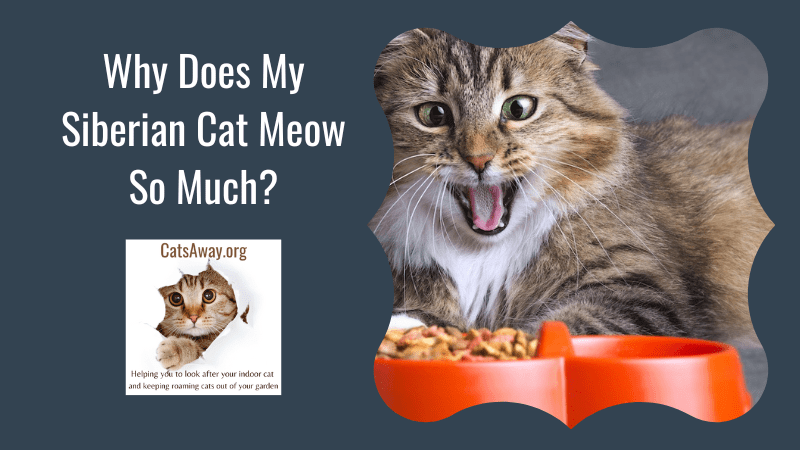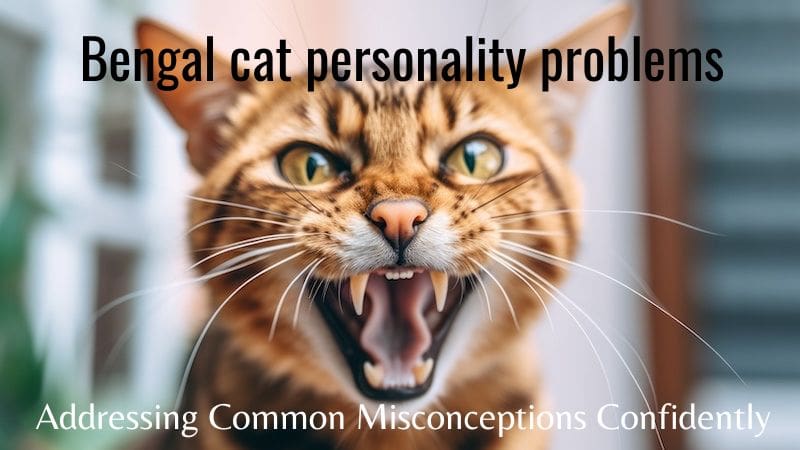If you’re considering adding a new feline friend to your household, you may be wondering if the Maine Coon cat is a good fit for your living situation.
Maine Coon cats are a popular breed known for their large size, distinctive appearance, and friendly personalities. But, do they make good house cats?
The answer is yes, Maine Coon cats can make great indoor cats for the right family. They are highly social and affectionate, often seeking out attention from their human companions. They are also known for their intelligence and can be easily trained. However, before bringing a Maine Coon into your home, it’s important to consider several factors to ensure they will thrive in your living environment.
In this article, we’ll explore the pros and cons of a Maine Coon house cat. We’ll discuss their temperament, exercise needs, grooming requirements, and more, so you can make an informed decision about whether this cat breed is the right fit for you and your family.
Temperament
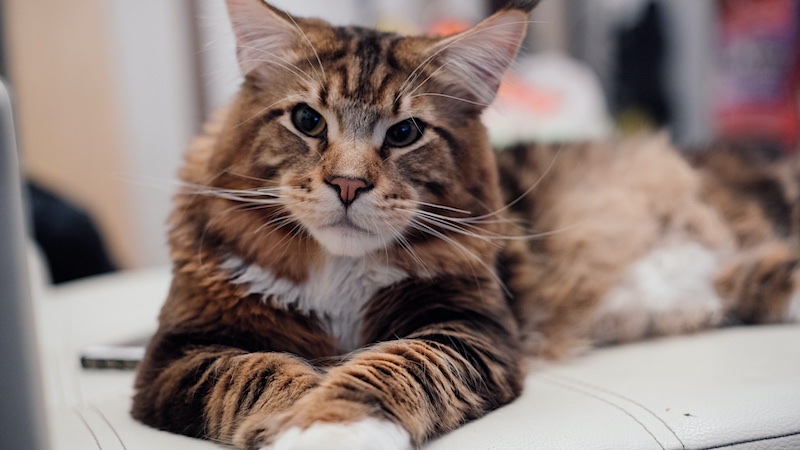
If you’re considering getting a Maine Coon cat, it’s important to understand their temperament. Here are some key traits to consider:
Affectionate
One of the most endearing qualities of Maine Coon cats is their affectionate nature. They love spending time with their owners and will often follow you around the house. They’re known for their gentle disposition and are great with children and other cats. They’ll often curl up in your lap for a cuddle or snuggle up with you in bed.
Independent
Despite their love for attention, Maine Coon cats are also independent. They’re happy to spend time alone and don’t require constant attention. They’re content to entertain themselves with toys or nap in a sunny spot. This makes them a great choice for busy households or owners who work long hours.
Playful
Maine Coon cats are playful and love to have fun. They’re known for their love of games and will often play fetch or chase toys around the house. They’re also great hunters and will happily chase after a toy mouse or bird. They also enjoy using a cat wheel which will help keep them fit and their weight down. This extra large wheel is ideal for Maine Coon cats.
This makes them a great choice for families with children or other pets who want a playful companion.
Overall, the Maine Coon cat makes a great house cat due to their friendly and easy-going nature. They’re affectionate, independent, and playful, making them a great choice for a wide range of households. Just remember that every animal is unique, so it’s important to spend time with your Maine Coon cat and get to know their individual personality.
Size and Space Requirements
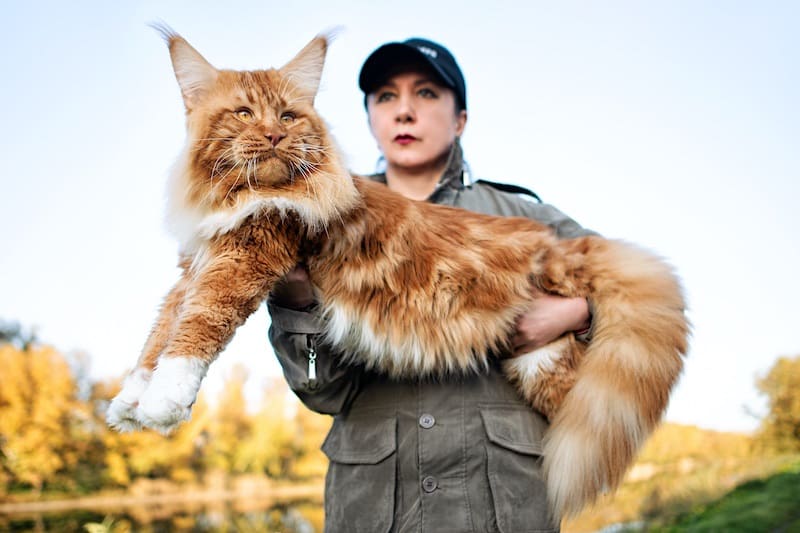
Physical Characteristics
When it comes to the Maine Coon cat, size definitely matters. These cats are known for their large size and muscular build. Male Maine Coon cats can weigh anywhere between 12-18 pounds, while females generally weigh between 8-12 pounds.
In terms of length, both males and females can range from 19-40 inches long. With their long, rectangular bodies and broad chests, Maine Coon cats are certainly a sight to behold.
Living Space Needs
Maine Coons are active and playful cats, which means they need plenty of space to roam and play. On average, cat owners recommend having 18 to 20 square feet for a Maine Coon cat. However, keep in mind that you can have 20 square feet across different rooms as long as your pet can roam freely.
If you live in an apartment, you may want to consider providing your Maine Coon cat with plenty of vertical space. These cats love to climb and perch up high, so investing in a cat tree or shelving unit can provide them with the space they need to play and relax.
It’s also important to provide your Maine Coon cat with plenty of toys and scratching posts to keep them entertained and to prevent them from damaging your furniture. Maine Coons can become lazy as house cats so its important that they have some active time to avoid putting on weight.
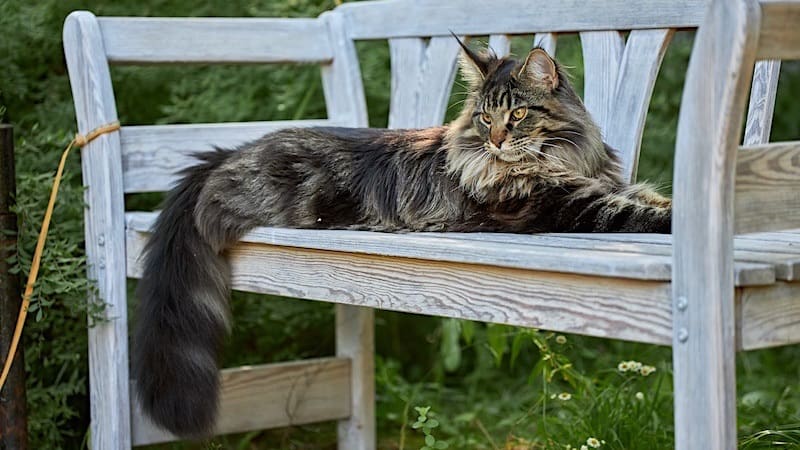
A cat proof fence to keep your Maine Coon in your garden is the ideal solution for a cat this big but if that’s not possible, a large cat enclosure is another option so he can get the benefit of some outdoor time without the dangers associated with mixing with outdoor cats.
Additionally, you’ll need to provide them with a litter box that is large enough to accommodate their size.
On average, a litter box that is 27 inches long and 18 inches wide should be sufficient. Overall, Maine Coons make great house cats as long as you can provide them with the space and resources they need to thrive.
With their friendly personalities and playful nature, these cats are sure to bring joy to any household.
Grooming Needs
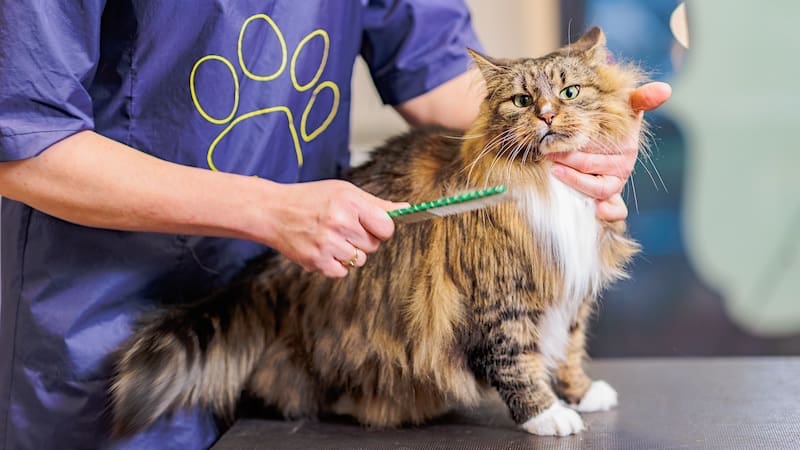
Maintaining the grooming needs of a Maine Coon cat is essential to keep their coat healthy and shiny. They have a thick, long, and silky coat that requires regular grooming. Here are some tips to keep your Maine Coon’s coat in tip-top shape.
Coat Care
Brushing your Maine Coon cat at least twice a week is essential to prevent matting. Use a slicker brush or a comb with wide teeth to remove any dead hair and debris.
You can also use a de-shedding tool to remove loose hair and prevent hairballs. Pay special attention to the areas around the ears, armpits, and belly, as they are prone to matting. If you notice any mats, gently work them out with your fingers or use a mat splitter tool.
Trimming your Maine Coon’s nails every two to three weeks is also important. Use a sharp clipper designed for cats and avoid cutting the quick. If you are not comfortable with trimming your cat’s nails, take them to a professional groomer or a veterinarian.
Bathing
Bathing your Maine Coon is not necessary unless they get into something messy or have a skin condition. However, if you decide to bathe your cat, make sure to use a cat-specific shampoo and rinse thoroughly.
Avoid getting water in their ears and use a towel to dry them off. You can also use a blow dryer on low heat to dry their coat, but make sure to keep it at a safe distance from your cat’s skin.
It is important to introduce your Maine Coon to grooming and bathing from an early age to make the process easier and enjoyable for them. Use positive reinforcement, such as treats and praise, to reward good behavior during grooming sessions.
Health Considerations
Common Health Problems
If you’re considering adopting a Maine Coon, it’s important to be aware of common health problems that can affect this breed.
Some of the most common health issues include hypertrophic cardiomyopathy (HCM), hip dysplasia, and polycystic kidney disease (PKD).
HCM is a heart condition that can cause thickening of the heart muscle, which can lead to heart failure. Hip dysplasia is a condition where the hip joint doesn’t develop properly, which can cause pain and mobility issues. PKD is a genetic condition that causes cysts to form in the kidneys, which can lead to kidney failure.
Preventative Care
While Maine Coons are generally healthy cats, there are some preventative measures you can take to keep your furry friend healthy. Regular veterinary check-ups are important to monitor your cat’s health and catch any potential health issues early.
It’s also important to choose a reputable breeder who tests their breeding cats for genetic conditions like HCM and PKD.
Using a high-quality indoor cat food and providing plenty of exercise can also help keep them healthy.
Regular grooming, including brushing their coat and cleaning their ears, can also help prevent common health issues like ear infections and hairballs.
Overall, Maine Coons can make great house cats, but it’s important to be aware of their specific health considerations and take preventative measures to keep them healthy. By providing your Maine Coon with proper care and attention, you can help ensure they live a long and healthy life as your beloved companion.
FAQ
How big are Maine Coon Cats?
Both male and female Maine Coon cats can be anywhere between 19″ to 31″ long – that’s nose to tail end.
Are Maine Coons OK left alone?
Maine Coons are known for being sociable and they enjoy playtime with their owners and other members of the family. If no one is home during the day you should make sure your cat has plenty of toys to keep him occupied. A cat tree and a view of the outside will also help.
Is it cruel to keep the Maine Coon breed as an indoor cat?
The opinion on whether it is cruel to keep Maine Coon cats indoors is divided. Some cat owners believe that Maine Coons need the outdoors to satisfy their strong hunting urge and get proper exercise.
However, Maine Coons can be indoor cats and still be happy and healthy, especially if they have enough space, enrichment, and attention from their owners (source) and in general indoor cats have a much longer lifespan than outdoor cats.
Keeping your Maine Coon indoors together with some garden time gives them the best chance of a long and happy life of 20 years or more.
Do Maine Coon cats shed?
Yes, Maine Coon cats do shed as they have a long and thick coat of fur. However, shedding varies from cat to cat and is influenced by factors such as grooming habits, nutrition, health, and genetics.
Maine Coons are not known for shedding more hair than other cat breeds, even though their hair is much longer and often seems thicker.
Is the Maine Coon cat hypoallergenic?
No, Maine Coon cats are not hypoallergenic. They produce allergens like other cats, which can cause allergic reactions in some people. The main reasons why Maine Coons are not considered hypoallergenic are their double coat with seasonal blowouts, high maintenance, and medium shedding level. If you suffer from allergies the Maine Coon may not be the cat for you but you can find others that are in our section on indoor cat breeds.
Conclusion
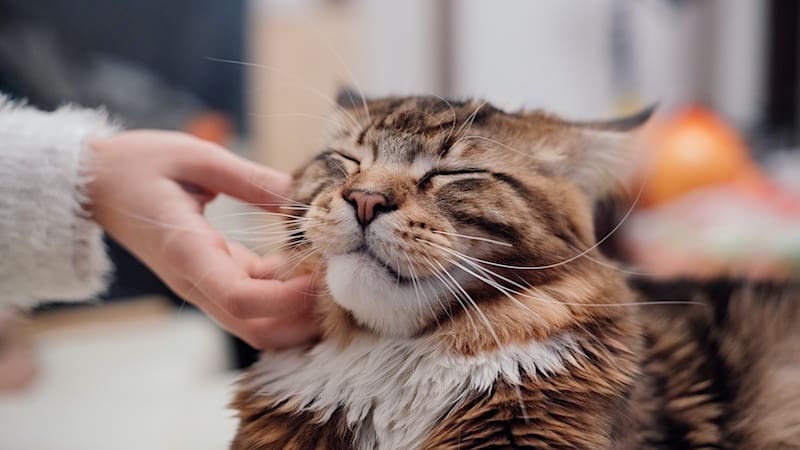
Overall, Maine Coons can make great indoor cats as long as their physical and mental needs are met. They are social, gentle, and playful creatures that can get along well with other pets and children. However, it is important to keep in mind that every cat is an individual and may have different personality traits and preferences.
If you are considering adopting a Maine Coon as a house cat, make sure to provide them with plenty of enrichment such as toys, scratching posts, and climbing structures. They also need regular playtime and interaction with their owners to prevent boredom and destructive scratching behavior.
While Maine Coons can live indoors, it is important to provide them with a connection to the outside world such as a window perch, a large outdoor cat enclosure or ideally a secure garden. This will allow them to experience fresh air and natural stimuli without the risks associated with roaming and mixing with outdoor cats.
Overall, if you are willing to provide your Maine Coon with the care and attention they need, these gentle giants can make a wonderful addition to your home as a house cat.
